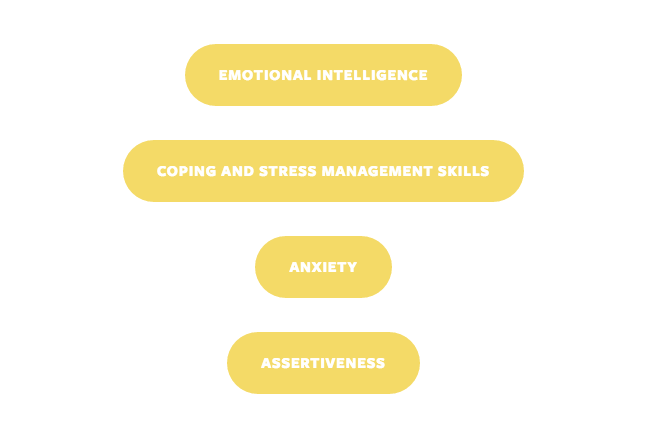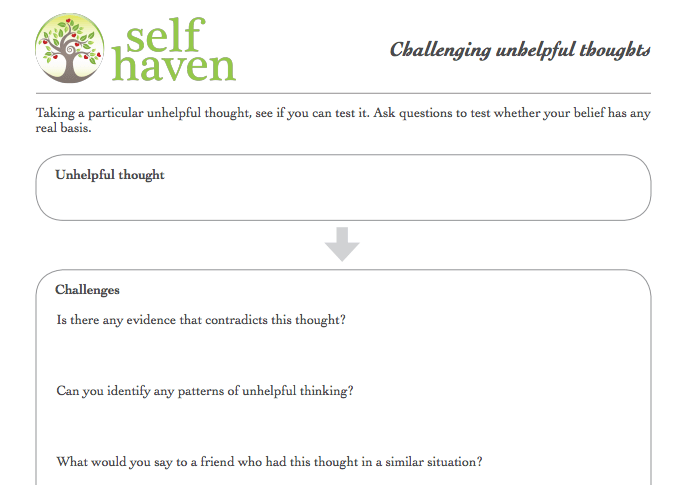Navigating Holiday Stress with Grace
IN-NETWORK with Blue Cross Blue Shield!
Exciting update! Now accepting Blue Cross Blue Shield for HIPAA compliant video-based mental health counseling. (Also in-network with Aetna, Cigna, United Healthcare, and Tricare Select & Prime!)
Ladies - Relax in the comfort of your own space while you receive professional one-on-one guidance tailored to your specific needs. Melissa Garner, LMHC is a compassionate and experienced Licensed Mental Health Counselor, practicing since 2010.
Ready to get started? Visit www.self-haven.com/private-session
Specialties include working with women recovering from anxiety, OCD, self-esteem, depression, trauma, toxic relationships, and burn-out.
Offering a variety of therapeutic techniques including evidence-based mental health counseling, personalized coaching and mentorship, art therapy, and guided mindfulness/relaxation training.
Learn more: www.self-haven.com/private-session
Licensed to provide services in Florida only. License # MH11872
#MentalHealth #counseling #selfcare #DepressionAndAnxietyAwareness #OCD #telehealth #mindfulness #therapy #traumarecovery #healthylifestyle
Why Do People Stay in Abusive Relationships?
I sat down with the amazing Meredith for Real: The Curiouis Introvert to discuss the importance of recognizing an abusive relationship, and how to get help.
“A compassionate look at why people stay in abusive realtionships, and how to help. In this podcast, we explore the different types of abuse, the emotional, practical, and cultural obstacles of leaving, how to leave when you're ready, and how to support a loved one in a toxic relationship.”
Love from the Inside Out
The Importance of Boundaries & Self-Care in Relationships
I had the pleasue of sitting down with my good friend, Meredith the Curious Introvert, to discuss the importance of boundaries, self-care, and relationships. If we approach awareness with a sense of curiosity, we are less likely to judge ourselves for it.
“The words boundaries & self-care sound like words involving just you, but Licensed Mental Health Counselor, Melissa Garner, explains how without these elements within relationships, resentment & burnout can happen. Stay to the end where she shares the 3 Cs of self-care.”
9 Yoga Poses to Alleviate Depression
Yogic Relaxation: The Ultimate Guide To Yoga Relaxation Techniques
Why Yoga Is So Effective for Relaxation and Stress Relief
In our busy, overstimulated world, finding ways to relax can feel almost impossible. Fortunately, yoga for relaxation offers a gentle, science-backed solution that helps calm both the mind and body. This ancient practice combines movement, breathing, and mindfulness to create lasting peace and balance.
Below, we’ll explore why yoga is effective for relaxation, simple techniques you can start today, and the latest research behind the benefits of yoga for stress relief.
The Science Behind Yoga for Relaxation
Yoga works because it engages the mind-body connection — uniting breath, movement, and focus. Studies show that consistent practice reduces levels of cortisol (the stress hormone), lowers blood pressure, and promotes relaxation by stimulating the parasympathetic nervous system, our natural “rest and digest” mode.
When we practice yoga, we send a clear signal to the body that it’s safe to relax, which improves sleep, boosts mood, and enhances emotional balance.
How Yoga Helps Reduce Stress and Anxiety
Regular yoga practice teaches mindfulness — the ability to notice thoughts without getting swept away by them. This awareness helps regulate emotions, ease tension, and promote calm even in stressful situations.
Research published in Frontiers in Psychology and the Journal of Alternative and Complementary Medicine confirms that yoga for stress relief can lower perceived stress, improve sleep quality, and support better mental health outcomes.
Simple Yoga Techniques for Relaxation
You don’t need a full class to feel the effects of yoga for anxiety and stress. Just a few minutes a day can reset your nervous system and restore calm. Try adding these soothing techniques to your routine:
Child’s Pose (Balasana): Releases tension in the back and shoulders and encourages deep, restful breathing.
Legs Up the Wall (Viparita Karani): A restorative pose that improves circulation and helps the body unwind before sleep.
Box Breathing: Inhale for four counts, hold for four, exhale for four, hold for four. Repeat several times to quiet the mind and lower stress.
Body Scan Meditation: Move awareness through each part of the body, releasing tightness and inviting relaxation.
Proven Benefits of Yoga for Relaxation
Reduces symptoms of anxiety and depression
Improves sleep quality and energy levels
Enhances mood and emotional resilience
Lowers blood pressure and heart rate
Increases overall sense of well-being and balance
These benefits can begin with just 10–15 minutes of yoga per day, making it one of the most accessible and effective natural stress-relief tools available.
The Bottom Line
If you’re looking for a simple yet powerful way to relax, yoga offers everything you need. Whether you practice for five minutes or fifty, the combination of mindful movement and breath can help you reconnect with calm, clarity, and inner peace.
Start small, be consistent, and let your practice grow — because relaxation isn’t something you chase; it’s something you create through presence.
Boundaries: Why They're So Essential to Your Health and Well-Being
Is Emotional Intelligence a SuperPower?
Emotional intelligence is an extremely important aspect of handling day-to-day life, and when used properly, it can really feel like a superpower. It involves recognizing feelings and emotions in others and regulating them in yourself, which makes interactions with other people much more satisfying and easier to address.
Dealing With Emotional Abuse
Depression and Anxiety: The Risk Factors You Need to Know
Myths About Self Care
The Importance of Mindfulness
Mindful Monday - Coming to Pensacola in August 2017

Starting August 2017:
Introducing Mindful Monday: Group Counseling + Therapeutic Yoga
Three different yoga therapy groups available every Monday, all designed to improve mood, self care, coping, support, mental health, and functioning. Choose from a variety of group types including chair yoga, hot yoga, and restorative. Read on for more information about each:
Chair Yoga for Chronic Pain
Enjoy being guided through gentle and engaging movement, postures, and breathing sequences, designed to promote a healthy balance between activity and rest. Topics practiced in this supportive yoga group include healthy coping with chronic pain, fatigue, and physical limitations. In chair yoga, we use chairs, straps, and blocks to practice both seated and supported standing poses. (No getting up and down from the floor!)
10:30 - 11:30, Mondays
Hot Yoga for Depression & Anxiety
Bring your water bottle! Get ready to sweat as we work to replace negative thought and behavior habits that get in the way of enjoying life. In this group, we practice open level yoga in a heated room to encourage personal reflection, cultivate focus and concentration, and yolk our mindful intentions with a physical practice. Topics covered in this engaging yoga group include managing depression and anxiety by improving self-talk, self-esteem, and self-expression. At the end of our session, be rewarded with a cold lavender towel and guided relaxation.
2:00 - 3:15, Mondays
Restorative Yoga for Stress
Indulge the senses in this candle lit restorative yoga group, designed to provide a safe place to rest, reflect, and restore the mind and body. Restorative yoga is especially gentle and practiced primarily on the floor with a variety of props including bolsters, straps, blankets, and eye pillows (provided). Topics explored in this restorative yoga group include recognizing and managing stress triggers, chronic overwhelm, and emotional burn-out. A variety of therapeutic modalities are offered in this group, including guided muscle relaxation, aromatherapy, gentle and restorative stretching, mindful breathing exercises, and an (optional) shoulder press.
4:00 - 5:15, Mondays
Location:
Uru Yoga, 955 Nine Mile Road
Pensacola, FL, 32514
Please visit the services page to register for Mindful Monday sessions:

Self Awareness is the Key to Change
Self Awareness if not for the faint of heart. It can be a daunting task to face our emotions, our pasts, and our current behaviors; however, this is the only way to improve self control, self care, and ultimately, self esteem.
If you would like some support and guidance in your self care journey, please do not hesitate to reach out to myself or another qualified mental health provider. You are not alone!
Be you.

To be the best you, try these tips below in times of self-doubt.
Relaxation for mindfulness: Calming the body and mind

We garden. We put on headphones. We fold ourselves into an overstuffed chair with hot tea and our favorite author.
Relaxation — and how we achieve it — is personal. Here at Self-Haven, you’ll find resources to help you unwind, from simple, soothing photography to professionally guided relaxation sessions. Mindfulness often means time for quiet reflection, and there is calming support in this space.
When we’re relaxed, whether it’s from an enjoyable activity, sleep or simple peace of mind, our body changes. The effects are similar to what happens during a massage, where the release of physical tension finds its way to the entire body.
The University of Minnesota’s massage therapy school breaks down what happens: Our heart rate slows, the body increases production of serotonin, a chemical that promotes positive emotions, and our blood pressure drops. That’s what it feels like for stress to melt away.
Sometimes, however, life throws us circumstances that make it difficult to get there. How do we cast away our cares when they seem so present? When we clear our mind with yoga, meditation or music, for example, we center our perspective. Certain techniques as fundamental as paying attention to the rhythm of your breathing can have a calming effect. The result is often that we cut through the noise.
Deep breathing is a great place to begin alleviating stress, and here’s a technique courtesy of WebMD. Put your left hand on your abdomen and your right hand on your chest. Slowly fill your lower lungs with air so that your left hand rises when you breathe in, and your right hand remains still. Now, slowly exhale, and repeat the process eight to 10 times.
That’s just the beginning. There’s so much more to see, hear and feel, and we invite you to explore.

















